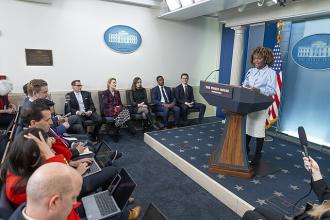The federal moratorium on evictions signed into law in March as part of the CARES Act is set to expire Friday night at midnight, setting up the potential for a wave of evictions in the middle of a pandemic that President Trump acknowledged this week will get worse before it gets better.
It’s possible that the moratorium will be extended as part of a new relief bill, but Congress is mired in negotiations and is not expected to finalize legislation until early August.
Some Democrats are sounding the alarm.
“Communities across this country need eviction protections and housing assistance in order to avert mass evictions and homelessness,” said Rep. Jesús García (D-Ill.). “If we fail to act, recovery from the coronavirus pandemic and the looming economic crisis will be impossible.”
The most recent survey by the U.S. census showed that 23.7 million Americans had little or no confidence in their ability to pay the coming month’s rent, accounting for a third of all renters. Over half that number already reported not paying their most recent month’s rent.
Not everyone facing eviction has been protected by the federal moratorium. It only applied to people renting from units with federal mortgages, which accounts for just over a quarter of all rental units, according to an analysis from the Urban Institute.
Other renters have been protected by broader eviction moratoria issued at the state and local level, but some of those have already expired.
In June, the Federal Housing Administration announced that it is extending its
foreclosure and eviction moratorium through Aug. 31 for those with federally insured single-family mortgages.
“You just sort of have a patchwork across the country,” said Samantha Batko, senior research associate at the Urban Institute.
But for those whose sole protection has come from the federal moratorium, a number which could amount to millions of renters, Saturday could start with a demand for months of delayed rent, or an eviction notice.
Princeton University’s Eviction Lab, which tracks evictions in a dozen U.S. cities, found that eviction filings resumed to pre-pandemic levels almost immediately after local eviction moratoriums expire. Read more at The Hill















